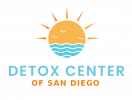While 12-step programs like Alcoholics Anonymous (AA) have been a cornerstone of addiction recovery for decades, they aren’t a one-size-fits-all solution. Many individuals seeking freedom from addiction find themselves drawn to alternative approaches that better suit their needs and preferences.
This blog post delves into various effective addiction treatment options beyond the 12 steps, empowering you to explore a path toward lasting recovery that feels right for you.
Why Consider Alternatives to 12-Step Programs?
There are several reasons why someone might seek addiction treatment options beyond the 12 steps. Here are some common factors:
- Religious or Spiritual Beliefs: 12-step programs often emphasize a belief in a higher power. Individuals who are uncomfortable with this aspect may find alternative programs that focus on self-empowerment or secular philosophies more appealing.
- Focus on Abstinence: Not everyone struggling with addiction desires complete abstinence. Some treatment options explore moderation techniques, harm reduction strategies, and controlled use approaches.
- Program Structure: The structured approach of 12-step programs might not resonate with everyone. Alternative programs can offer a more flexible structure or a focus on individual therapy.
- Personal Preferences: Ultimately, the most important factor is finding an approach that feels comfortable and motivating for the individual in recovery.
Exploring Effective Alternatives: A Look at Different Approaches
The landscape of addiction treatment offers a variety of options to support your recovery journey. Let’s explore some of the most common alternatives to 12-step programs:
- Self-Management and Recovery Training (SMART Recovery): This science-based program equips individuals with tools to manage urges, build motivation, and develop healthy coping mechanisms. SMART meetings offer a supportive environment where participants can learn from each other’s experiences.
- LifeRing Secular Recovery: This international organization provides peer support groups focused on self-reliance and empowerment. LifeRing meetings offer a safe space to share challenges, celebrate successes, and build a support network without a spiritual component.
- Women for Sobriety (WFS): Founded specifically to empower women in recovery, WFS offers a comprehensive program that addresses the unique challenges faced by women struggling with addiction. WFS groups provide a supportive space for women to connect and heal.
- Secular Organizations for Sobriety (SOS): Similar to LifeRing, SOS offers peer-support groups with a secular focus. SOS meetings empower individuals to take control of their recovery journey using self-directed methods and evidence-based tools.
- Moderation Management: This approach explores controlled substance use for individuals who may not desire complete abstinence. Moderation Management programs teach strategies for responsible use and preventing relapse.
- Therapy-Based Treatment: Addiction is often intertwined with underlying mental health conditions. Individual therapy, cognitive behavioral therapy (CBT), dialectical behavior therapy (DBT), and family therapy can address co-occurring disorders and develop healthy coping mechanisms.
- Holistic Therapies: In addition to traditional treatment approaches, holistic therapies can play a valuable role in addiction recovery. Techniques like acupuncture, mindfulness meditation, yoga, and nutritional counseling can promote overall well-being and support a holistic approach to healing.
Finding the Right Fit: Considerations When Choosing Alternative Addiction Treatment Options to the 12 Steps
In navigating the landscape of addiction treatment, the multitude of available options can be overwhelming. It’s crucial to select a program that resonates with your unique needs and preferences, rather than adhering to a one-size-fits-all approach like the traditional 12-step model. Key factors to consider include the treatment philosophy, therapeutic modalities offered, the expertise of staff members, the environment and amenities provided, and the level of personalization in the program. Adrian Dubiel, CEO of the Detox Center of San Diego, advocates for a holistic approach that integrates evidence-based practices with individualized care. His center offers a range of alternative programs tailored to each client’s specific circumstances, promoting flexibility and empowerment in the recovery journey. By prioritizing personalized treatment and diverse therapeutic approaches, Dubiel and his team strive to address the complex needs of individuals struggling with addiction, fostering lasting recovery and holistic well-being.
Remember, you are not alone in your recovery journey. Don’t hesitate to reach out to a qualified addiction treatment professional who can help you assess your needs and explore the best treatment options for you.








